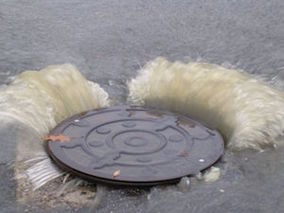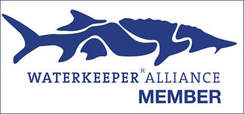What is a a Sanitary Sewer Overflow?
A Sanitary Sewer Overflow (SSO) is an event in which untreated sewage is discharged from the sewage collection system into the environment prior to reaching the sewage treatment facilities. These discharges endanger human health, cause property damage, and degrade our local water quality.
What causes SSO events? The majority of the SSO events experienced by the City of Jackson collection system were caused by either grease buildup or collapsed pipes. Other causes include excessive flow and blockages from roots and solids. The City of Jackson's aging sewer lines are crumbling and collapsing in many areas. View this City of Jackson video to learn more about how you can help reduce buildup of fats, oils and grease in the sewer system collection lines. How can SSOs be reduced or eliminated?
Is public notification required during an SSO event? Currently, neither the City of Jackson, MDEQ or the MS Department of Health is required to notify you if an SSO occurred in your neighborhood. In the event of an "overflow creating significant health hazard or significant volume has reached waters of the US and/or State", "(City of Jackson) will issue a news release and place temporary signs in the area of the overflow. Additional notification will be considered in conjunction with MDEQ and HCHD." Where have the City of Jackson 2018 SSO events occurred? Check out our interactive map below to find out if a SSO event occurred in your City of Jackson neighborhood. Click on the pinned locations for information about the date, location, cause of the overflow, and amount of untreated sewage released. Large Scale Map Link |
AuthorPearl Riverkeeper is a licensed member of the Waterkeeper Alliance, the largest and fastest growing nonprofit solely focused on clean water. Archives
July 2024
Categories |
|
Ready to support our work for Clean Water and Healthy Rivers?
|
|


 RSS Feed
RSS Feed
